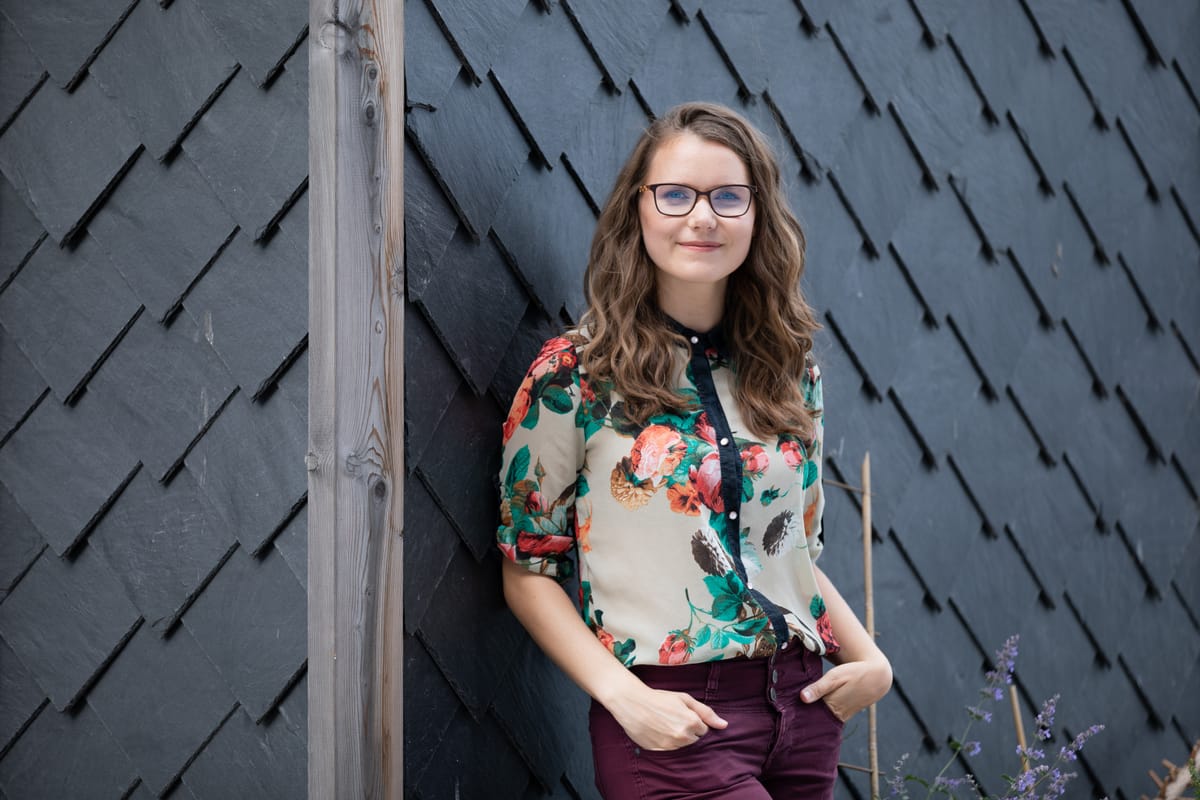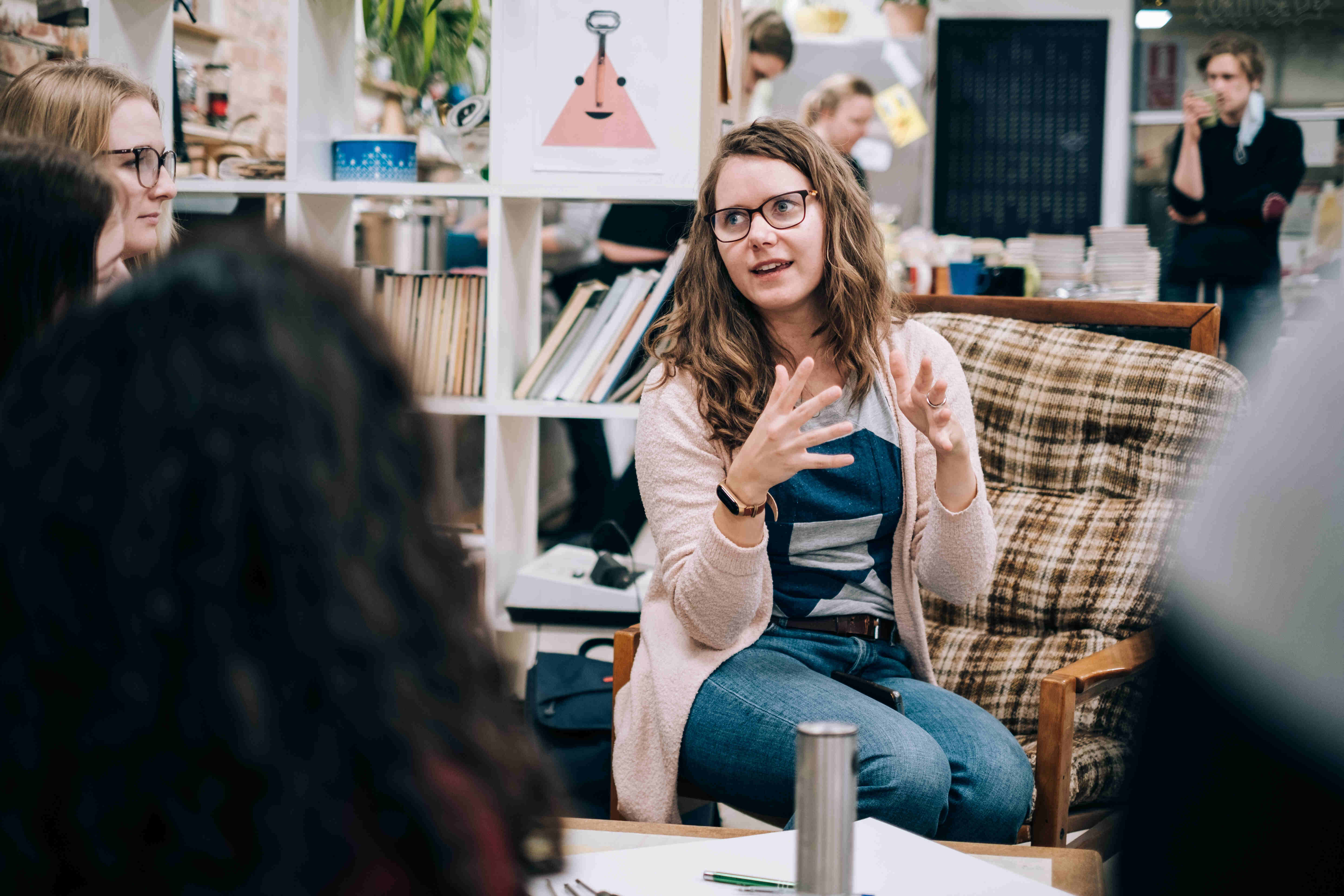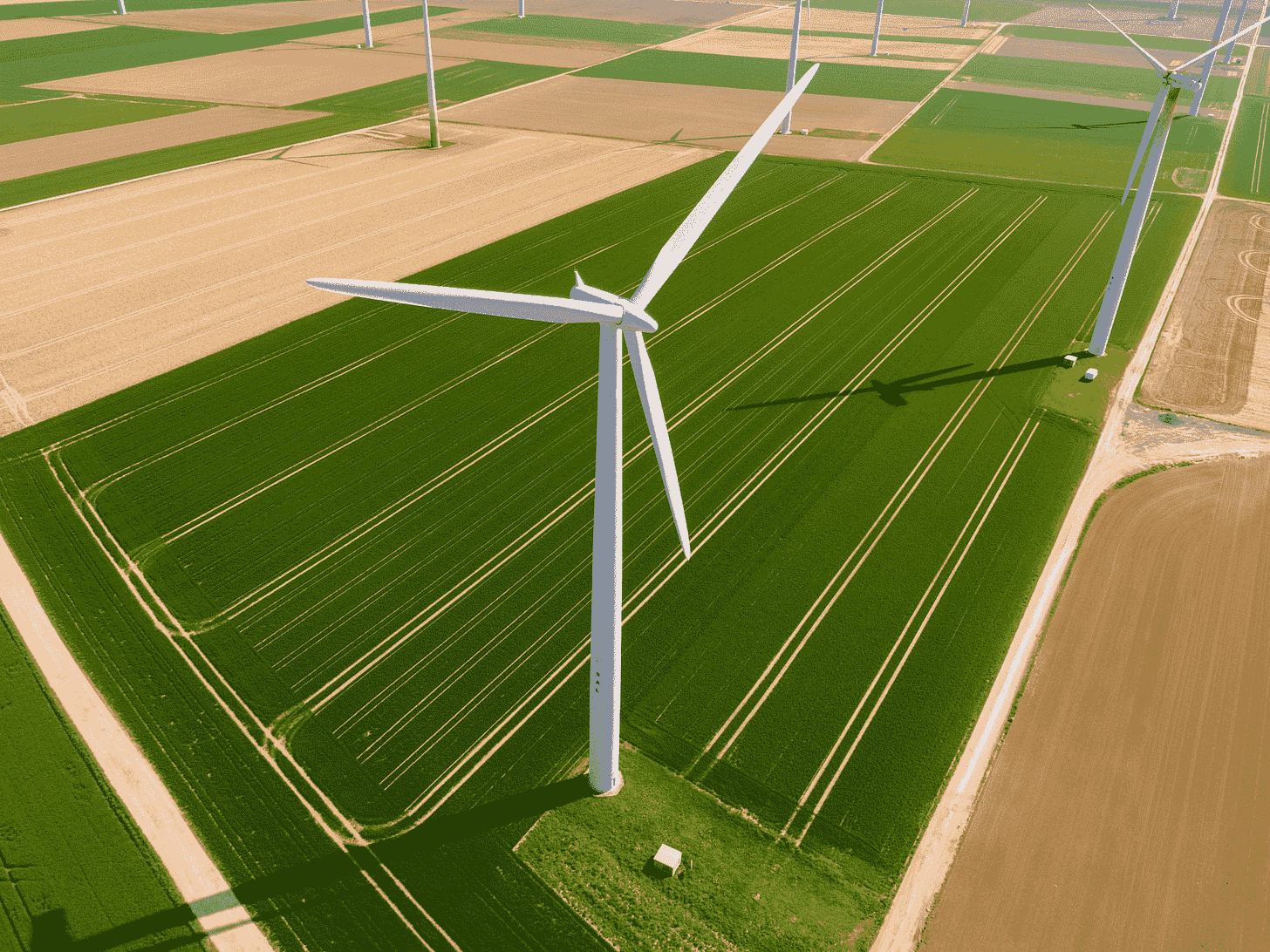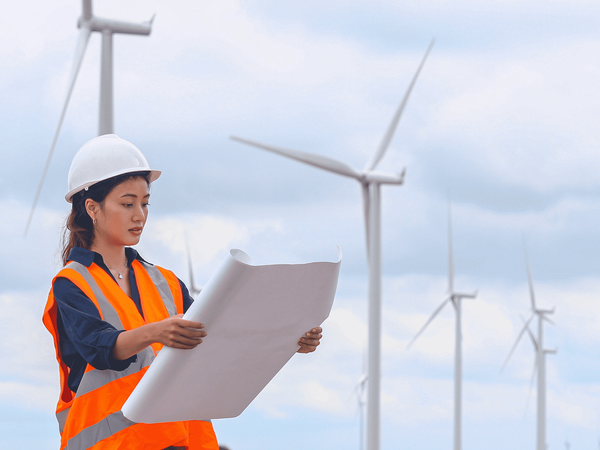Mayri Tiido: a journey into the circular economy with Materjalivoog's co-founder

Mayri Tiido, the co-founder of Materjalivoog talks about her journey to the sustainability field and her dedication to closing the loop of the materials supply chain.
Mayri Tiido found her passion when she discovered the solutions brought by the circular economy for a sustainable future.
Four years ago she co-founded Materjalivoog, a B2B marketplace for industrial excess and leftover materials from production, currently operated in Estonia.
The platform works mostly with companies in the textile sector but is increasingly expanding to other products. The launch of the platform was greeted with a lot of enthusiasm and support, but as with every business, there are some rainy days to survive.
Learn more from Mayri about how she discovered her passion for the circular economy, the building of her platform, the challenges, and the importance of impact-driven businesses being supported by governments and society.
So Mayri, how did you get into the sustainability field?
I was in my early 20s when I realized that my passion is to work with people. I really liked being in front of people as a trainer, and a facilitator, but I didn't know what field to focus on.
Some years later all these environmental and sustainability topics were grabbing my attention and I got interested to explore more.
Initially, I did what most people do— went through that learning curve while adjusting my lifestyle to be more sustainable. At some point, I was not even buying new clothes for myself. I was going shopping with all my self-made veggie bags and boxes to avoid accumulating plastic bags.
Later, I got the idea to train people on how to be sustainable in their everyday life. The more I dug into the topic, the more I realized that it's not necessarily about your individual choices but more about the system we have built around it.
Then I discovered the circular economy and the importance to work for a systemic change, which is more efficient than putting in an effort that you have to make yourself individually.
Now I’m committed to putting all my skills and abilities into that and helping people to move toward a circular world. So that's my journey.
Amazing! Let’s talk about your company and the work you have been doing so far.
The company is called Materjalivoog, which means material flow. We started four years ago with a very simple question— "what happens with the industrial leftovers?". So if you're manufacturing and are producing some products, what happens with the excess material?
I realized that every country should have this kind of overview of material streams before we call them waste and before the waste manager gets a hand on them.
To bring these access materials back to the system, we built a marketplace for businesses to sell their excess materials. We connect them with the buyers and provide a safe space for the buyers. At the moment, textile is the most popular sector in the platform but we also have wood and boxes.
We had a lot of challenges along the way— which were not technical but more about convincing companies to understand the value of those excess materials. Currently, the biggest struggle is to make them understand that when they are throwing away the leftovers, they are throwing away the valuable materials, which could be easily sold and earn money.
And it's interesting because it comes from the Neoliberalist capitalistic economic model, where the main goal of any business is to produce the products and sell as many as possible. So most companies just don't think about reusing discarded materials and the associated environmental impact. It was our real challenge at the time, not only for us but globally.
Since you already touched upon the challenges, are there other challenges you are currently facing?
First, opening the eyes of companies about the value of the products they discard, then maintaining interest in this type of business as we are trying to find out what's the best support we can give to these businesses.
Once a user said in our survey that they are not using the platform too much because it is a lot of work and they will need to hire someone just to manage it. It's interesting because they maybe have almost 100,000 Euros worth of excess materials in their warehouse that is about to go out but don’t want to hire somebody to get revenue from that.
I understand the companies don't want to deal with this material, even more, the small ones but I also see a lot of symbiosis potential between smaller companies, and local businesses cooperating in facilitating that process. That’s why a waste manager can be very important in the process.

So what are your plans for the next years?
I do have to say that the company still feels ahead of its time. The market has not yet realized that this is something we need as a society. We are talking about being a responsible entrepreneur with a responsible business.
Through the whole value chain of your product, you're taking responsibility also as a business to make sure that everything gets valued on the highest level, but, we're not there yet as a society to demand these processes from the businesses and for the businesses to provide that themselves.
So there is development with ESG regulation and all the demands in that regard. In that sense, we are also excited from the perspective that the Ministry of Environment in Estonia is now putting together a fund to support projects for the evaluation of secondary materials. So the public sector level puts the secondary materials topic more in the spotlight. So we are hoping to benefit from that.
Another topic is that we are four people at this very moment. There are a lot of small initiatives trying to do something similar to us, but I'm just trying to encourage people to cooperate instead of competing. We are currently selling in Estonia, but we're not against going outside of Estonia too.
Now talking about being a founder, do you have any tips for people who are starting their own companies?
I would say, if you are starting a company relating something to sustainability or circular economy, persevere and understand on a deeper and systemic level what we actually need. It is important to understand the current rules of the economy when you are building a business that is going to challenge the current standards.
And it's not going to be easy because the current standards have been there for decades in some cases. That's the thing why you need perseverance. And in that sense also, I would encourage people to lobby the public sector in favor of funding or even do regulations to support a circular economy business model.
We need to prepare the reuse systems and refurbishing of e-waste for example because, in the capitalistic model, these things are not relevant. So, persevere and make yourself aware of the current economic rules.
What do you think is the future of sustainability?
So I have my optimistic days and I have my pessimistic days. So from the pessimistic point of view, I think we're going to see a lot of greenwashing because there are a lot of businesses that make billions without being responsible for the pollution or the damage to the environment, and they want to keep that business.
But I think also, unfortunately, climate change is becoming more real and real to people, finally in first-world countries. So from that perspective, I think, I am optimistic that we're going to get sustainability more strongly on the agenda. I would believe that the people would actually come to the streets to demand changes.
Anything else you would like to add?
I think maybe I would just encourage people to kind of dream of a better future, dream that it's possible to have an alternative future where we do things differently. It's also a skill we need to actually build a sustainable future.
I would say that if it becomes easy for you, keep imagining and keep working towards it. And if it's very hard for you to imagine alternatives, then try to develop that skill.
Because we need, in that sense, optimistic and visionary people who will push and design the new systems, rules, and borders of the game.
Visit previous interviews with other Green Initiatives.



